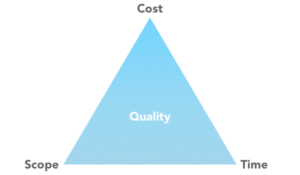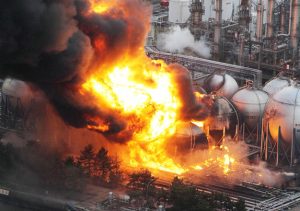Southeast Asia Is The Next Hot Spot for Offshore Decommissioning
“With over 380 fields expecting to cease production in the next decade, the magnitude and cost of work can no longer be ignored. Through learning from global decommissioning projects, the industry can adopt and adapt practices best suited for Asia Pacific’s own set of challenges.” With more than 1,500 number of structures and more than 7,000 number of wells in Southeast Asia (Malaysia, Indonesia, Thailand and Vietnam), Southeast Asia presents a lot of opportunities for offshore decommissioning, and could cost over $100 billion. Decommissioning is a rapidly developing market sector in the petroleum business, with major potential and major…
Read More2 Ways To Manage Project Costs and Budget
When planning and managing for project costs, several factors come into play and knowing how to successfully manage them will ultimately help achieve project success. The two most common factors that lead to project delay and increased in project costs include design errors and scope change. As important it is to understand how they affect project costs, it is just as important to know how to mitigate and avoid them. Design Errors Design errors are one of the major reasons why project costs overrun. Proper representation of client’s requirement is important to set a clear picture of what…
Read More3 Causes Of Fatalities In Industrial Accidents
Recent statistics published by the International Labour Organization (ILO) state that more than 2.3 million workers die each year as a result of occupational accidents or work-related diseases. While the main cause of deaths among workers was diseases related to work, hazardous substances alone was estimated to cause 651, 279 deaths a year. The increasing rate of fatalities and severe injuries in the oil and gas industry are disconcerting, and indicate how dangerous the industry is. Here are 3 causes of fatalities in industrial accidents. Vehicle Accidents Work sites for the oil and gas industry are often found…
Read More3 Reasons Why Getting Workers API-Certified Benefits the Entire Company
Boost workers productivity Studies show that workers with professional certifications are more productive. Those with certifications are better prepared and educated with the latest and most acceptable industry inspection practices. Workers certified in refractory, for example, are more knowledgeable of installation, inspection, testing and repair of refractory lining and qualified in doing so. Certified workers often work more efficiently than uncertified colleagues, and their presence can help improve the productivity of day-to-day operations. Encourage greater peace of mind When workers are certified, they learn from the training the importance of adhering to certain professional and industry standards. This…
Read MoreHow Planning For Plant Turnarounds Ensures Success
Plant turnaround and start-up is an important aspect of plant maintenance that helps improve the life expectancy of assets. It is no longer the responsibility of only the maintenance department but involves organisations to set up a multifunctional team responsible for turnaround planning and execution. A good and detailed turnaround process requires a well-defined work process that helps in the better management of employees, reduced downtime and increased chances of a successful plant turnaround and start-up. Better Management of Resources The turnaround steering committee typically consists of the facility’s senior management to manage the turnaround’s scope and budget. This…
Read MoreSkills Needed For Project Managers To Be International Ready
As organisations continue to internationalise and increase their global presence, the discipline of project management grows in importance and the role of the Project Manager becomes more crucial to the successful delivery and achievement of the organisation’s business goals. Hence, project managers today need to be international ready and certified in doing so to keep up with the demands of the business world. Here are some of the skills needed by project managers to be internationally ready. Adaptability In a fast-paced environment, an international project manager needs to be able to quickly respond to changes in the industry…
Read More3 Causes of Industrial Fire and Gas Explosions
Industrial fires and explosions cost companies and governments billions of dollars yearly. In 2017, an average of 37,000 fires occurred at industrial and manufacturing properties and resulted in 18 deaths and 279 injuries. A total amount of $1 billion was recorded in direct property damage alone. Here are three most common causes of industrial fires and explosions. Electrical Hazards In manufacturing plants, examples of electrical hazards include exposed wiring, overloaded outlets, extensions cords, overloaded circuits and static discharge. As these items are a source of ignition for fires and explosions to occur, these hazards are dangerous without proper…
Read More4 Benefits of Using Big Data
In today’s world, competitive advantage for organisations is obtained by their ability to successfully capture, manage, and analyse massive volumes of data and turning it into valuable insights. However, nearly 55% of big data projects fail due to the lack of cooperation among departments, poor planning and lack of staff experienced in big data. As more and more business decisions are backed by data, it has changed the way organisations operate today. In addition to streamlining business operations, here are some advantages of incorporating big data into operations today. Streamlining Business Processes Big data streamlines business processes through…
Read MoreHow To Successfully Integrate Human Factors Engineering
Human Factors Engineering (HFE) is a discipline of applying human limitations to the design of processes, systems and work environments. An essential part of HFE is the Human Factors Integration Plan (HFIP), which is the “systematic process for identifying, tracking and resolving human related issues to ensure a balance development of both technologies and human aspects of systems”. The HFIP is important for the human factors engineer to plan its resources and allow successful integration of HFE. As HFE compromises of many elements, such as safety aspects, efficiency aspects, human aspects, technology needs and more, a HFIP needs…
Read MoreIntroduction to Drilling and Completion and Well Intervention (CWI)
Over the last couple of years the E&P industry has lost a lot of expertise as a result of lay-offs and from the experienced staff retiring; the Big Crew change. Steady and healthier elevated crude oil prices have seen a recovering of activity level, necessitating the hiring of new staff by Service Providers and Oil and Gas Operators. Young staff currently joining the Industry, to replace that lost staff, find themselves in an alien world full of specialized terminology, technology and in fact full of risk exposure. With hardly any experienced “mentors” around, almost no more active E&P training…
Read More







